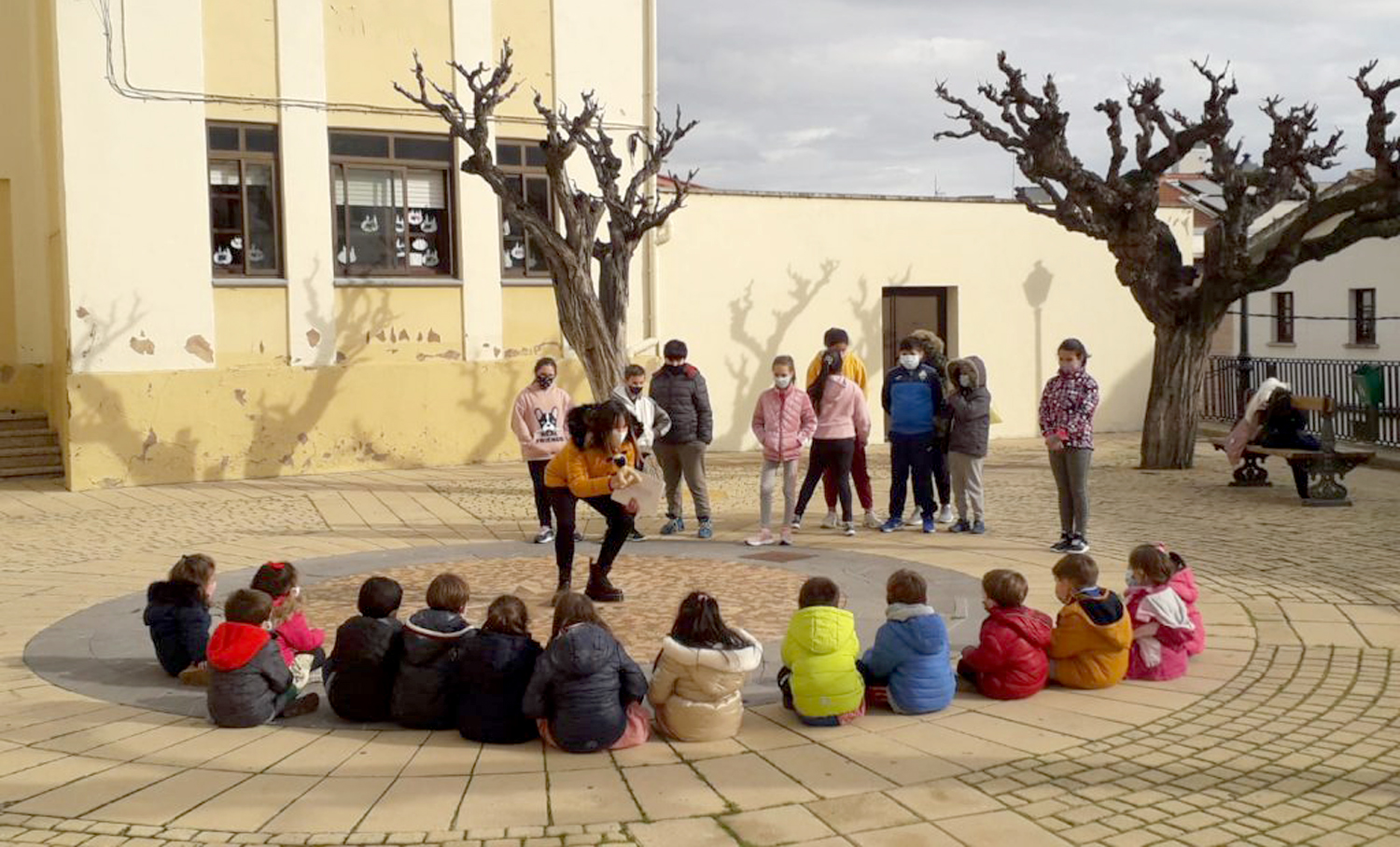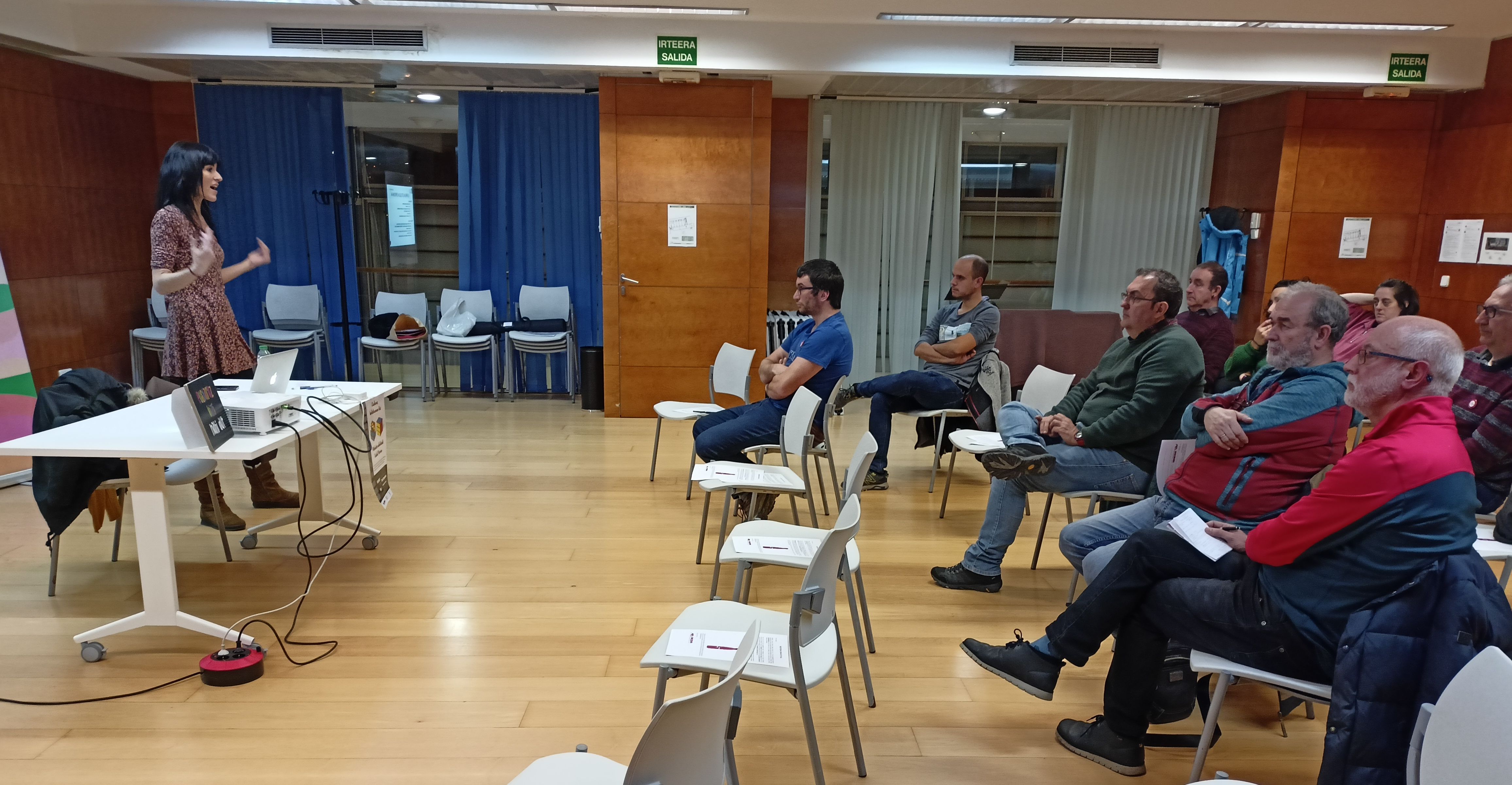The Observatory on Linguistic Rights warns of the risk of perpetuating infringements of language rights in public services
- The Observatory on Linguistic Rights presented the report The Situation of Linguistic Rights 2021 at an event held last week at the Europe Palace in Vitoria-Gasteiz. It warned of the risk of perpetuating infringements of language rights in public services. In 2021, the Observatory received 1,320 incidents, most of them in services and public administration.

Last year she turned 20 and the institution’s director, Agurne Gaubeka, stressed that “we would like to highlight a similar picture to the one that the area of linguistic rights has had in some areas during these 20 years. Not only that, the steps taken or the achievements made in these years can be threatened.”
The technician of the Garbiñe Petriati Observatory then took the floor: "Unfortunately, the measures of these years have been too slow and in some areas in 2021 there have also been steps backwards. In fact, this year the Observatory has received 1,320 incidents, 15% more than in the year of the 2020 pandemic."
Public administration and services, source of most complaints
This year’s report makes a sectoral analysis, but it was intended to refer to a specific area: public services and the need for measures to guarantee the linguistic rights of citizenship and equality at all times. In order to achieve this objective, the Director of the Centre stressed the need to work on the active and passive aspect of language rights: "That citizens cannot use Euskera if the service is not available. And for this, in addition to creating the appropriate regulations and other instruments of work, all public positions must be prepared to offer services in Euskera: care in Euskera, information, resources… be able to work in Euskera as well”.
All this is detrimental to the different vertices of linguistic rights. On the one hand, public services should serve as a reference in guaranteeing the rights of citizens for the Euskaldunization of the socio-economic area, but, according to Gaubeka, "unfortunately, the fact that in the different territorial areas the public administration itself has more diffuse criteria causes similar criteria to be reproduced also in the socio-economic area". On the other hand, the decisions taken in the public services affect the linguistic habits of the citizens, since "some public services have become accustomed to receiving in Spanish and others to suffer collateral damage due to the use of the Basque Country leads to despair and the feeling of secondary citizenship".
This fact has also been reflected in the evolution of the incidences registered at the Observatory in 2021, with 1,199 complaints of 1,320 cases, 73 congratulations, and the other different consultations or suggestions. Of these, the administrations of the Basque Government and the Government of Navarre have received the most complaints.
The violations that occur daily from the different departments of the Government of Navarra are a reflection of the different decisions made by this administration: in some cases, the impossibility of receiving services in Basque, and in others, the citizenship suffers collateral damage. On the other hand, Gaubeka explained that "the insufficient legal protection of the Basque Country and the distribution of citizens' rights by linguistic areas was a clear prejudice for the citizens who also wanted to relate in Basque in 2021 to the administration". He has also indicated that the "non-consideration of the rights of citizens who want to live in Basque" in public calls for employment, as well as the "judicial challenge of the decisions taken to guarantee these rights" have led citizens to assert their rights.
In the Autonomous Community of the Basque Country, the usual deficiencies were repeated as each year. The establishment of the linguistic priorities of the administrations according to the number of speakers or by area is directly related to the non-guarantee of the linguistic rights of citizenship on equal terms. Citizens have found the most obvious deficiencies in terms of safety and interior or health, but there are still problems in accessing Basque services in the field of education and in the modernisation of general services. The spokesman for the Centre stressed that in this Community too "forensic aggressions have multiplied the determination and demands of citizens".
In Ipar Euskal Herria, although there is a will and willingness to adopt linguistic policy measures by some local households, the current legal and regulatory framework generates limits. Gaubeka added, however, that "in the different administrations the Basque language is still a secondary language and the citizens continue to claim the presence of the Basque language in the information given to them so much abroad".
The obstacles to the learning of Euskera in the educational field have been maintained in 2021, in addition to the legal limitations imposed by the model of linguistic immersion in Euskera in the public system of Navarra and Iparralde, the lack of supply in Euskera in children's schools, in vocational training or in universities strongly conditions the citizenship.
In the case of state administrations, despite the increase in citizen complaints, many citizens have become accustomed to receiving the services of these administrations in Spanish or in French. In addition, citizens highlight the collateral effects produced by the use of Euskera with these administrations.
In the socio-economic sphere, Euskera has less and less space.
In the socio-economic field, in 2021, the citizens also highlighted the violations of linguistic rights in the major centres or chains of commerce throughout Euskal Herria, in hospitality, in services of general interest (energy, transport, telecommunications) or in the field of leisure (culture and sport). In the words of the technician Garbiñe Petriati, "from the Observatory it has been found that in these services the Basque country has less and less space and that, even in cases of legal obligation, it is increasingly difficult to access services and care in Euskera. Beyond Spanish and French, since in these areas English occupies a more prominent place than Euskera".
On the other hand, the lack of offer in Euskera for leisure or a lower offer in Euskera "may affect the consumption habits of citizens and, for the future, there was a concern with the messages and offers addressed to the youngest and youngest". He also pointed out that in these areas "companies and entities that, without having any legal duty, try for their determination to offer a service in Basque, continue to thank the citizens for their quality of service and respect for citizenship", valuing the congratulations and acknowledgements received by the Observatory.
Incorporating measures as part of social responsibility
Finally, the Centre has called on public administrations throughout the Basque Country, "as a matter of priority", to analyse "their current deficiencies in guaranteeing the linguistic rights of citizens and to implement more effective measures". On the other hand, in order for the socioeconomic sphere to be translated into Euskaldunization and the assumption of the basic rights of citizenship beyond volunteerism, "the approach of legal measures and protections is also something that public administrations should promote", as well as the recognition of the linguistic rights of their clients and users by private entities and companies "is part of their social responsibility in the construction of a more just and egalitarian society".
Hizkuntz Eskubideen Behatokiak publikatu egin ditu ekainean erregistratu dituen eskubide urraketak eta zorion mezuak.









.jpg)











